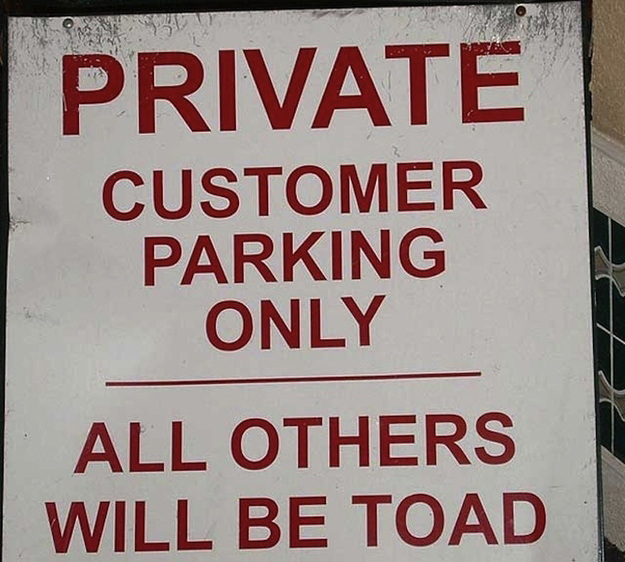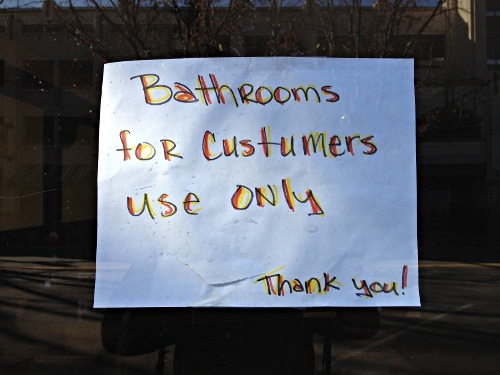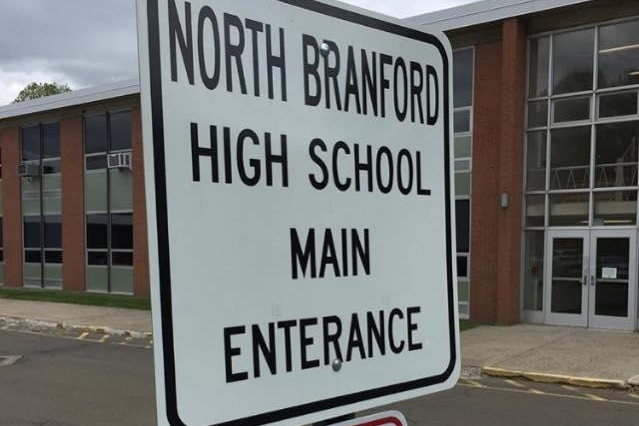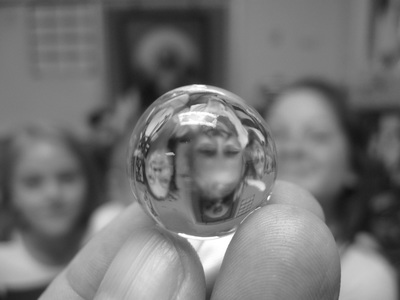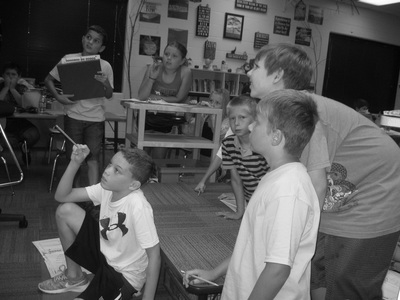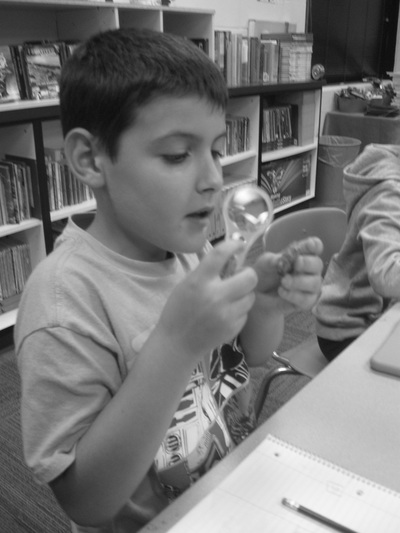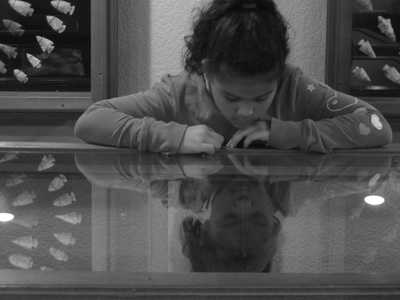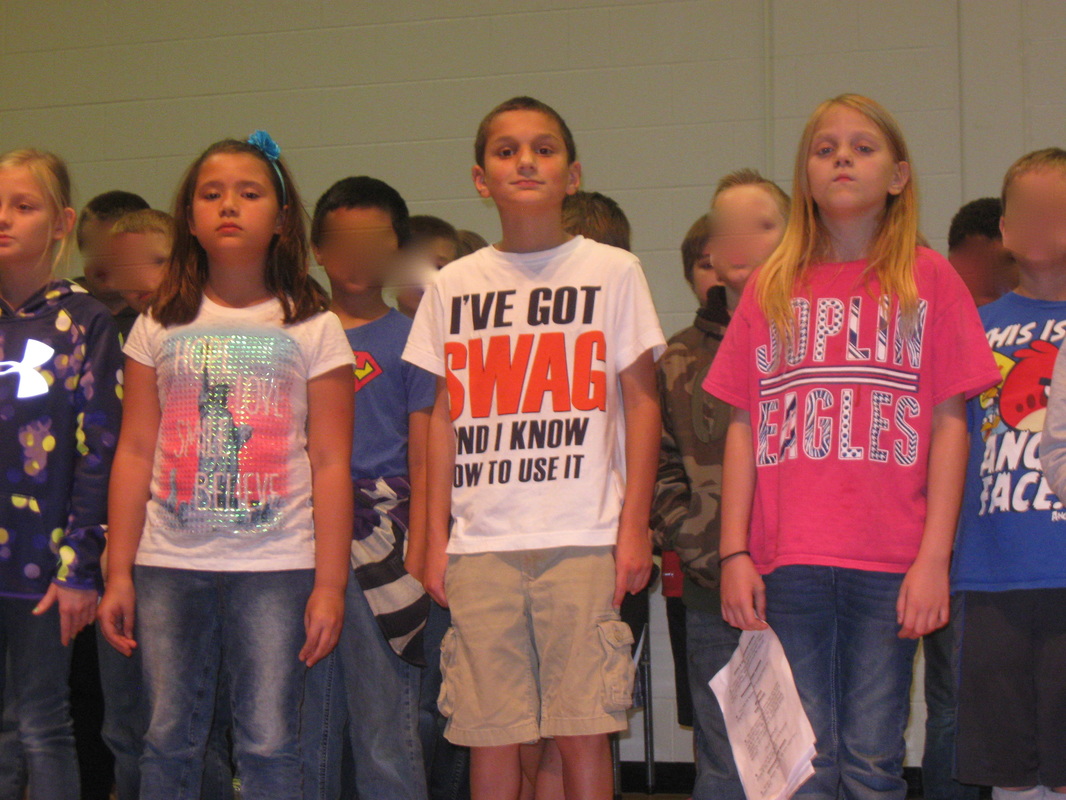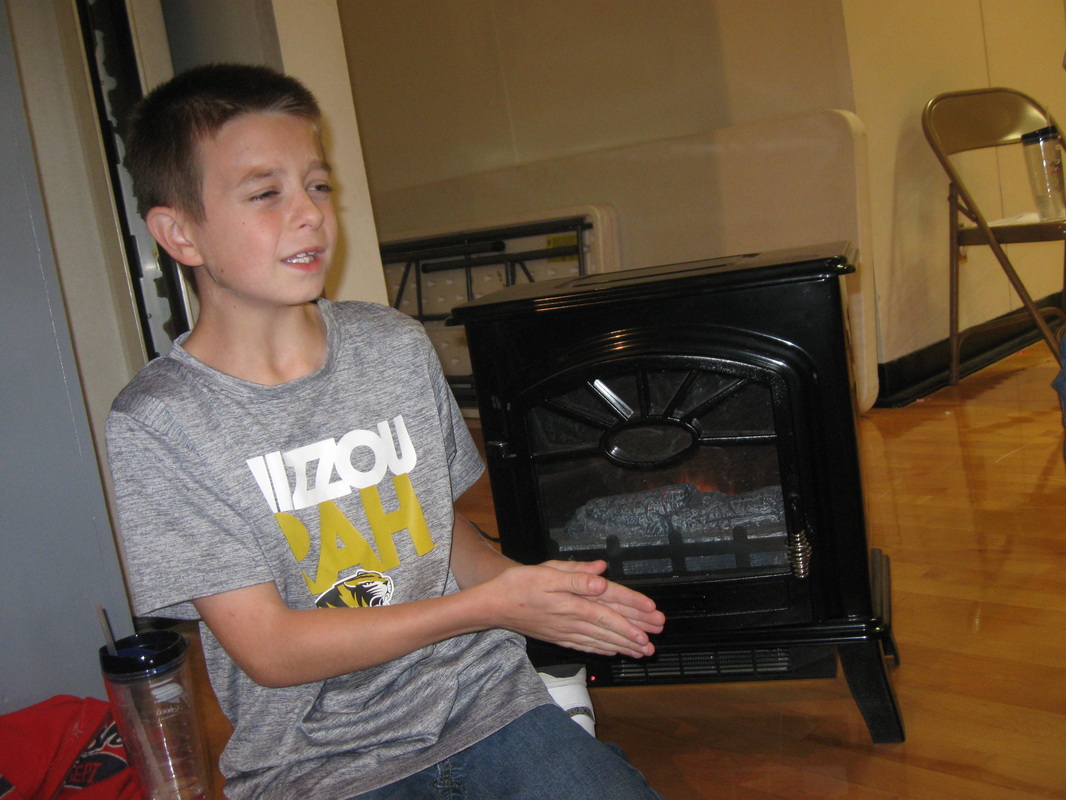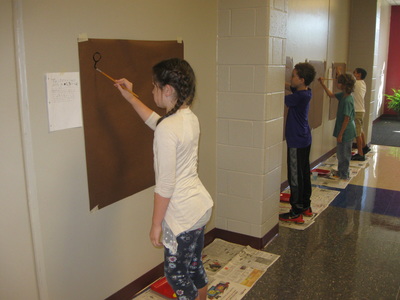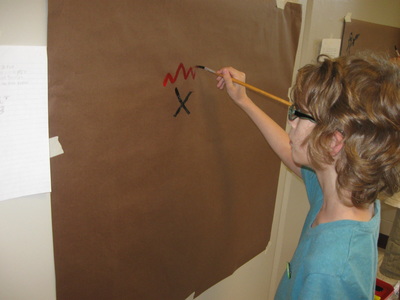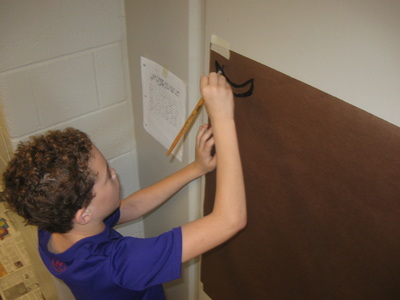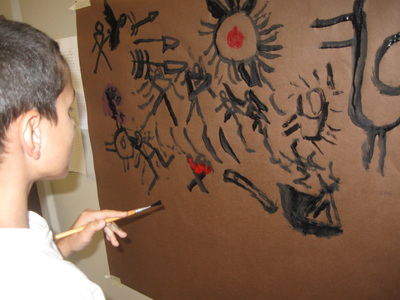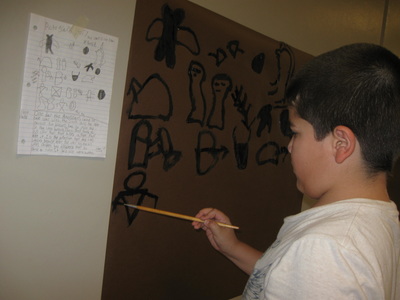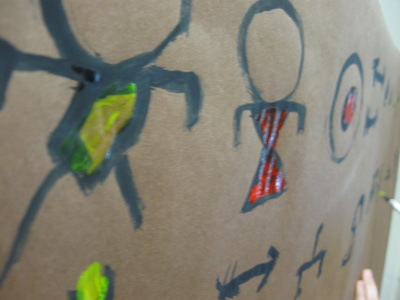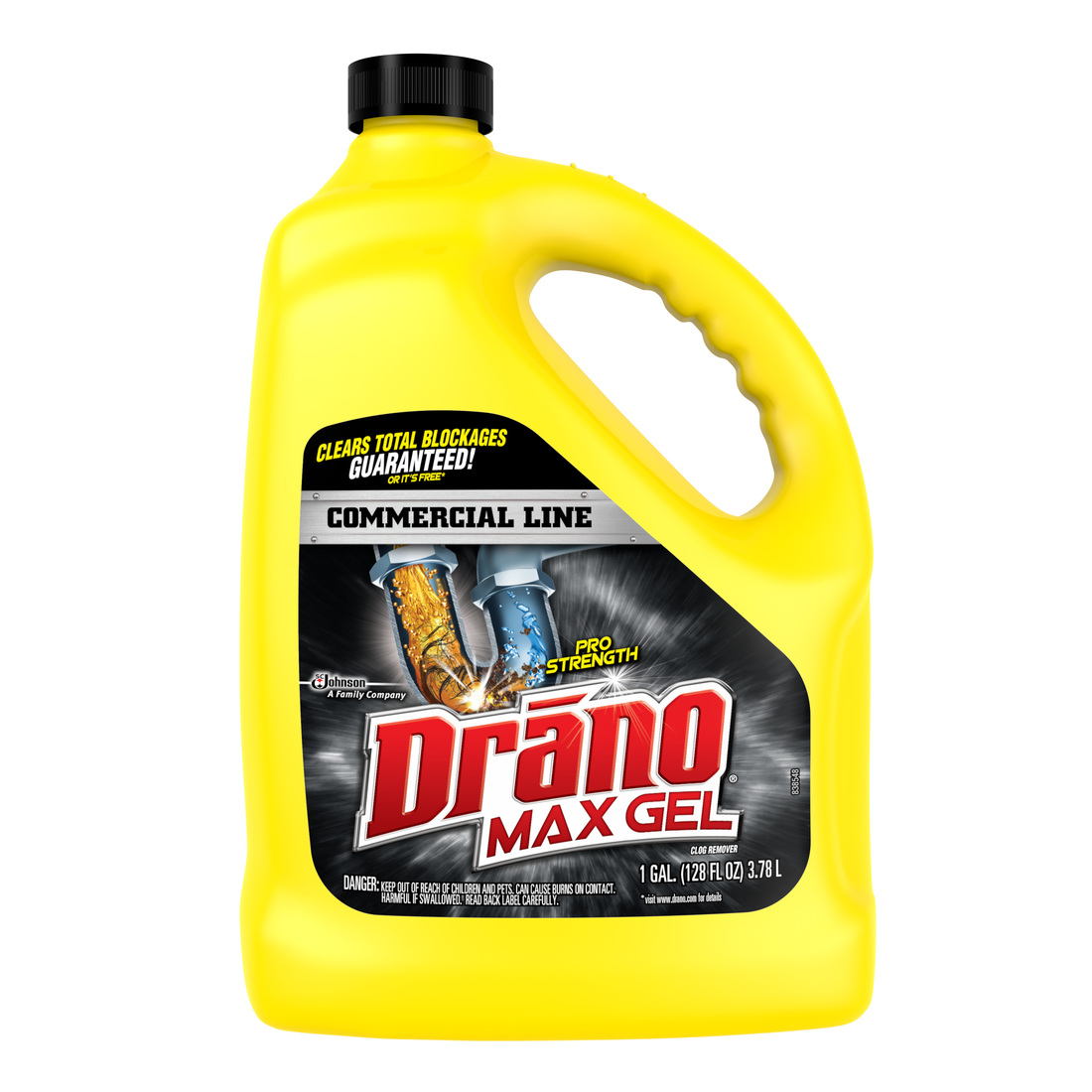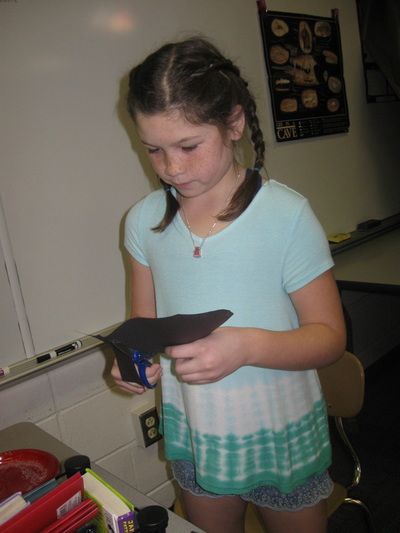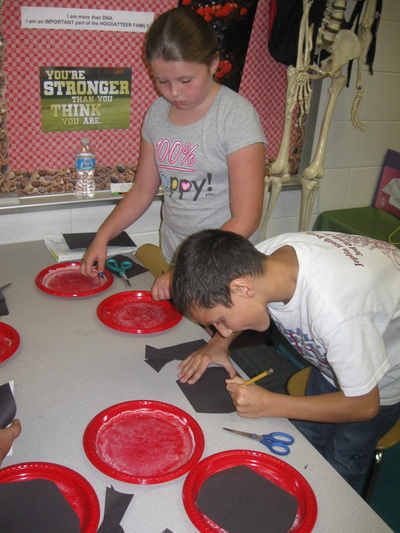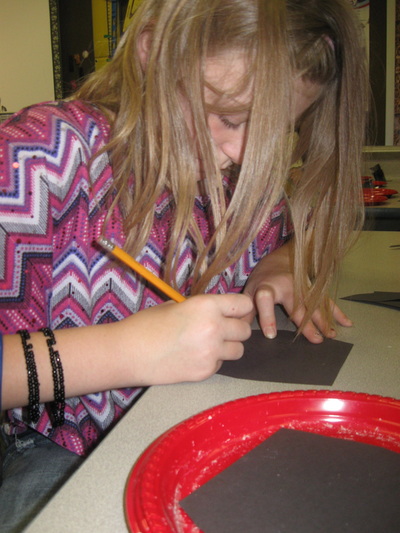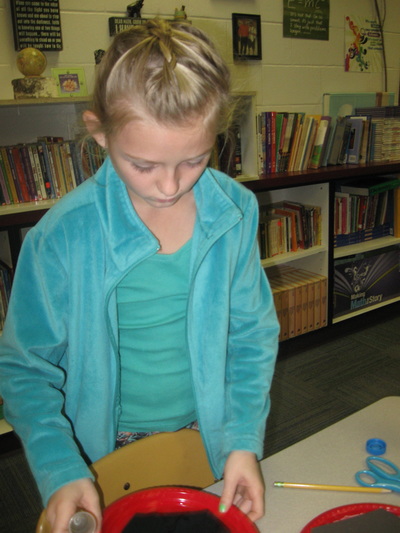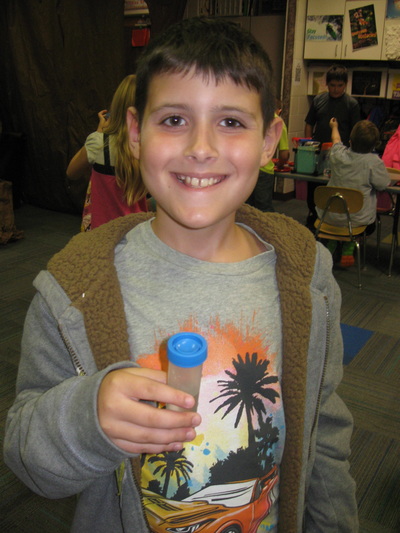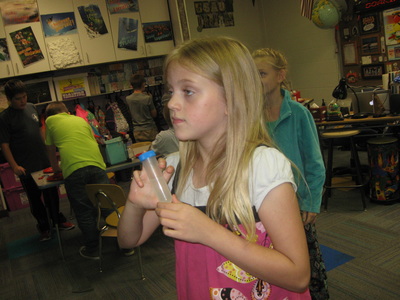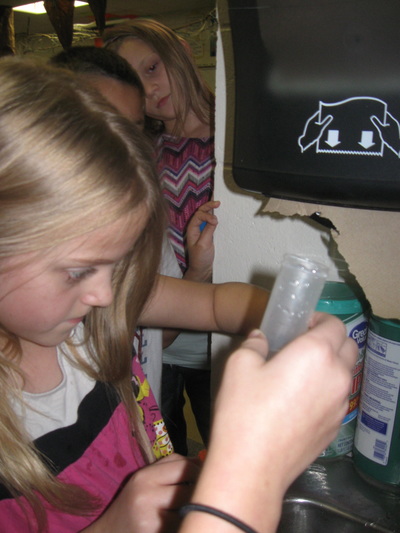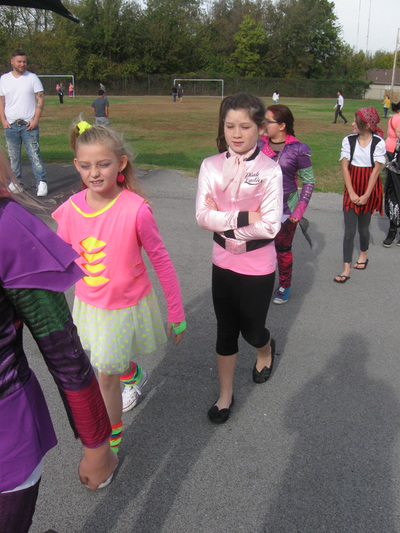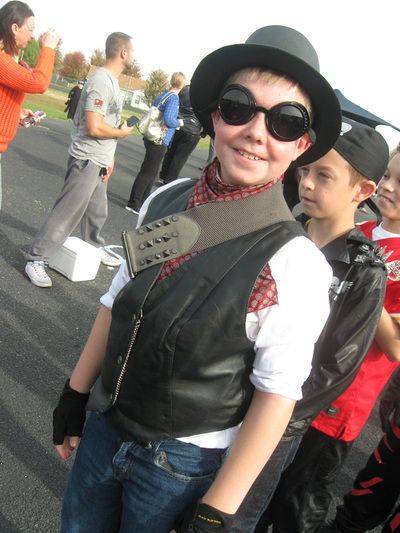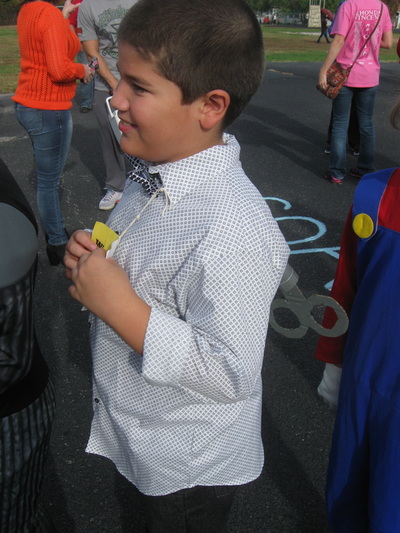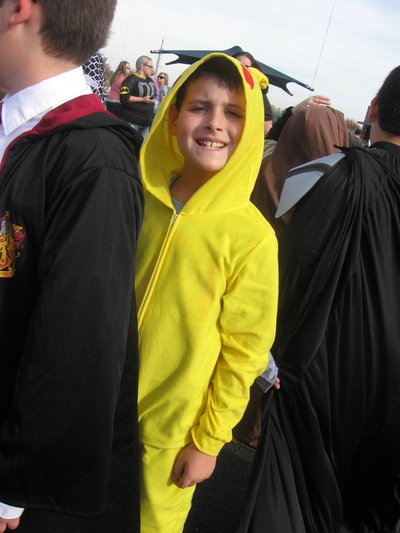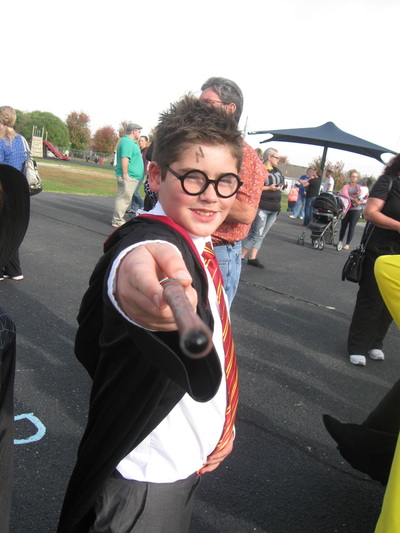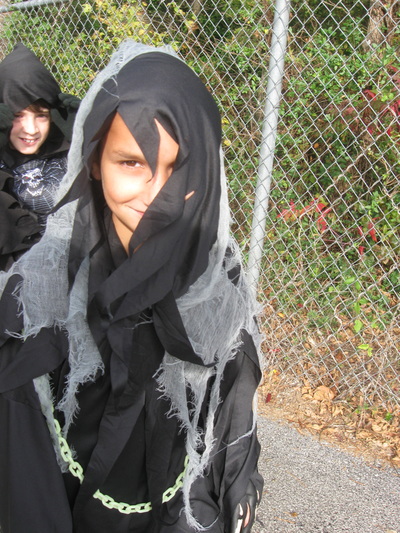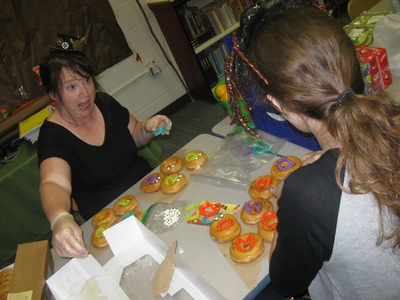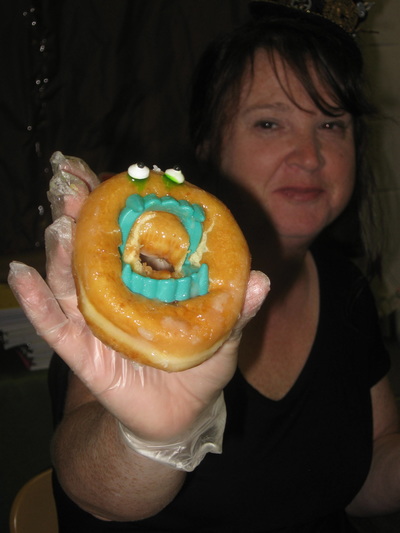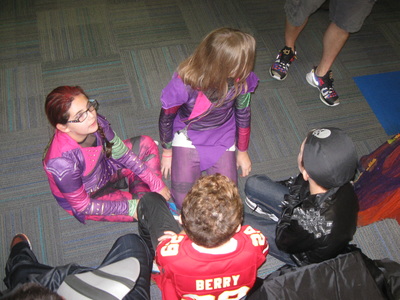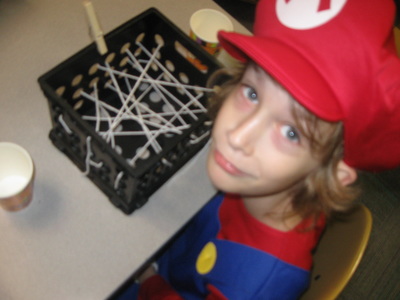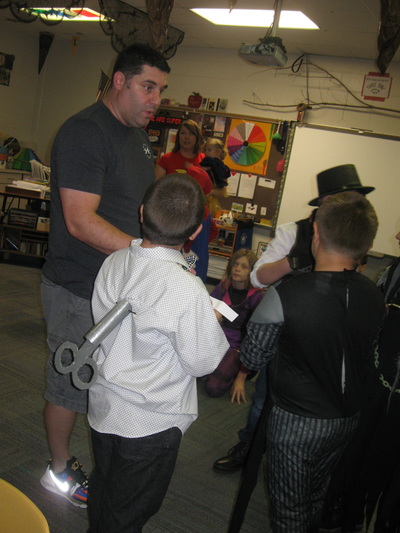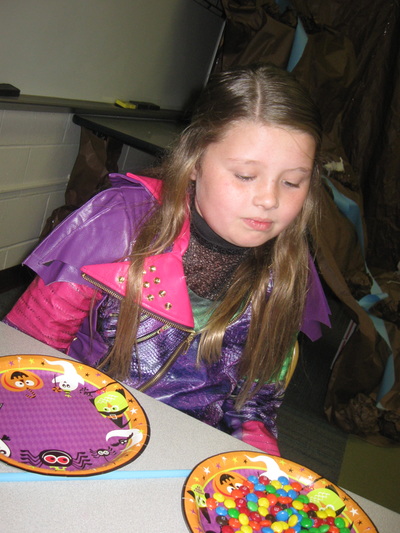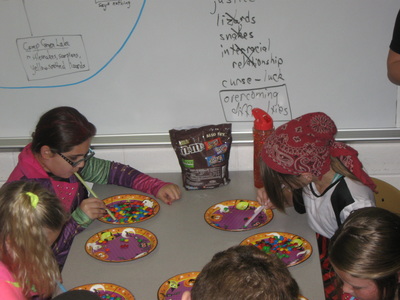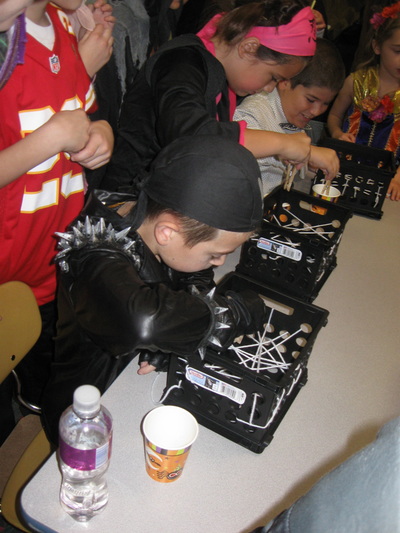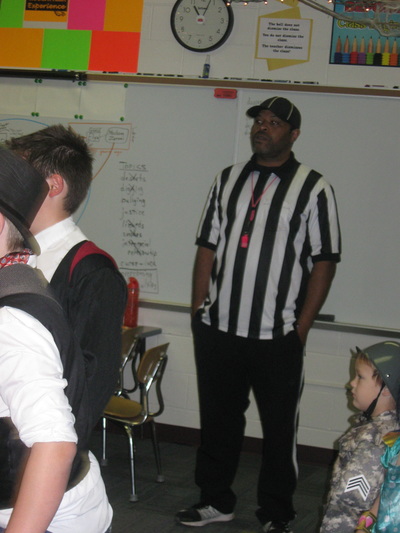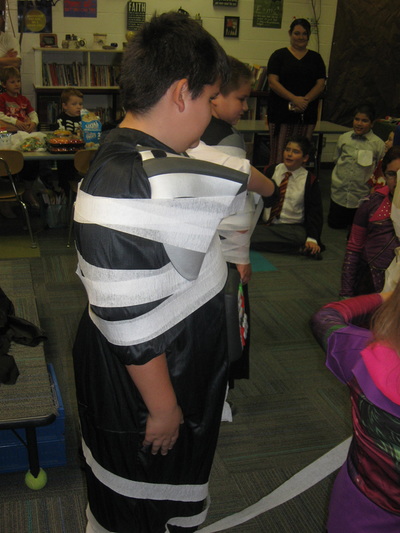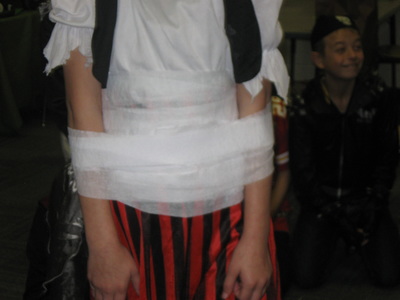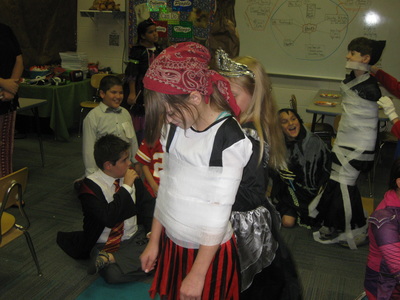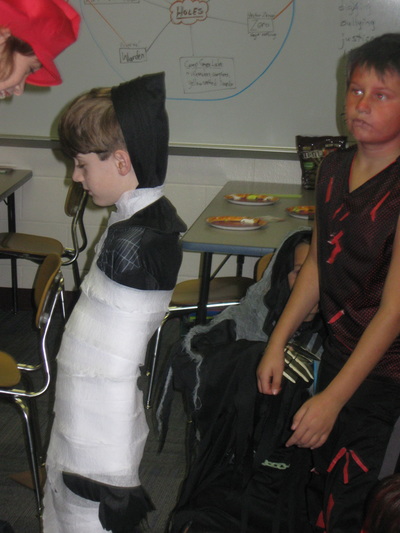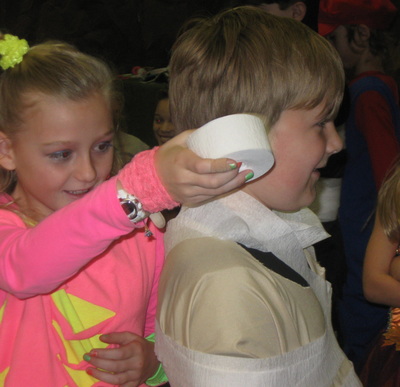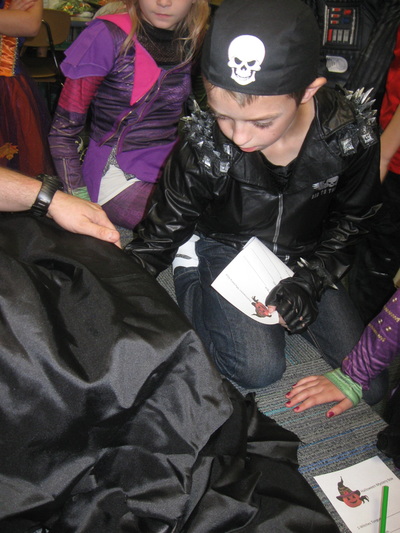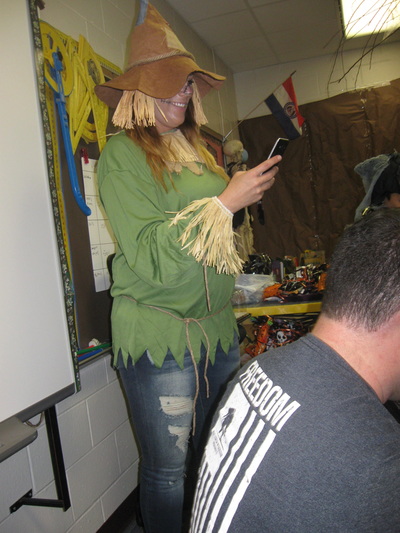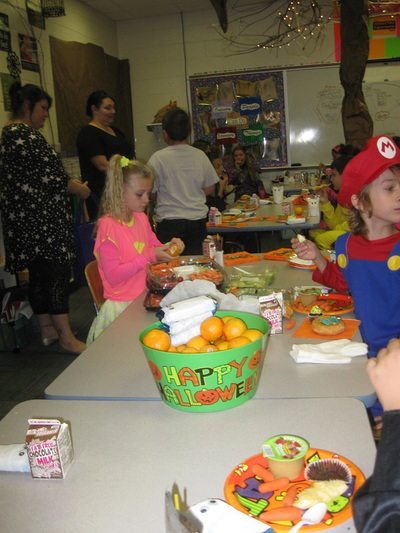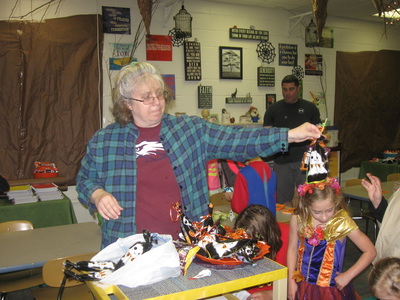|
We love our veterans! Here are some of the pictures from the school's facebook page:
0 Comments

When I look at the way education evaluates students, it surprises me that our nation has been the leader of the free world for as long as it has. It's understandable that this system worked for the needs of our country at its inception, but the fact that we have remained the leader without changing the education system is perplexing.
Tony Wagner and Ted Dintersmith, authors of the book Most Likely to Succeed: Preparing Our Kids for the Innovation Era, point out something in which our class might be interested. ...[T]here is the question of what won't be tested. Even at its best, the new Common Core tests will not assess any of the so-called soft skills that matter most and, in fact, are the hardest to teach and learn.
Actually we might disagree. Those so-called soft skills (those skills that include behaviors for the purpose of employability) have not been, in our experience, difficult to teach and learn at all. They have required consistency, and they must be taught and expected, but they have not been difficult. However, I will concede that if those skills are only expected, but not explicitly taught, failure will result. In fact, it is obvious to visitors in our building. You can even see it in the recent news report that featured some of my students. You see it in the way they carry themselves and in the way they speak. The result is confidence, courage, and risk-taking.
That aside, the authors give contrasts in the ways current, traditional instruction in certain subjects stack up with the needs of the 21st Century. In Math, we agree that certain basics must be mastered to provide a foundation for the rest, but for the most part the Math Practices we talk about so much in our classroom are reflected in the suggestions provided in the book. In fact, Math Practices make up a great deal of the list:
21st Century Model
Math Skills Needed to Succeed Deeply understanding the problem 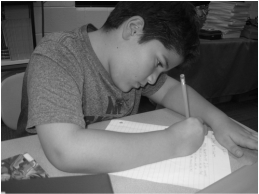
In short, we want our students to solve real problems, not simply work through meaningless computations. Creativity hasn't traditionally been applied to solving Math problems, but it absolutely should be. Thoughtful adults can see many applications for creative problem solving in their lives. What's more is that we not only solve problems, but we must identify problems, whittle them down, and decompose and reconstruct them before we ever begin to solve them. This is an interesting angle to how I would like to do the same with the ways in which I approach Math in the fourth grade.
Moving to Communication skills, I think the authors simply ride current trends to teach writing and speaking. They don't say enough about speaking skills, but I believe this may be because they do not consider that speaking might include many of those soft skills that we try to emphasize in our class. They also fail to consider that speaking may be more important than writing in the 21st Century (and beyond). Imagine James T. Kirk ever writing more than a signature on an electronic clipboard, or Jean Luc Picard ever writing anything at all. Instead, all writing on the Starship Enterprise (in all of its inceptions and alternative timelines) was - or will be - done by the computer, unseen by human eyes, whether officers on the bridge or by audiences in the theater.
21st Century Model
Language Arts Skills Needed to Succeed Use sound vocabulary 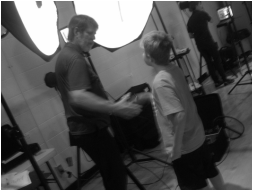
These are good suggestions, but perhaps we should take the suggestions in Most Likely to Succeed a step further to include more nuanced speaking in a variety of settings. Do our students reply in full sentences when asked questions? Do our students ask questions in return? Are students able to stay focused on a topic? Are they able to stand in queue to respond without interrupting? Do they stand erect, with confident posture? Do they present themselves with energy? Do they effectively use facial expressions and hand gestures as an extension of their message? Do they consider the tonal inflections in their voices to assist them in the conveyance of their message? Certainly, there is a need to communicate on paper and screen, but verbal skills, more than written language, are the manner by which people get and hold onto jobs.
Indeed, verbal skills are needed in every single area of the curricula. Often, even gifted and talented pupils struggle with the ability to explain processes and ideas. Communication breakdowns, or should we say misspeaking, are the causes of most of the problems we witness in news reports. Misunderstanding verbal communication (and text messages) can lead to anger and, too often, violence and hatred. It's not only a fault of the politicians, but for illustrative purposes, we'll use them as our example.Politicians fail to communicate their understanding of the Constitution. They fail to effectively explain the relationship of history to the decision-making process. In the search for the perfect sound byte, they miss the mark in effectively communication regional needs, and in doing so they do a serious disservice to their constituents. Look at the suggested focus on the suggested skills list from Wagner and Dintersmith,, and one may start to see a pattern:
21st Century Model
History Skills Needed to Succeed Critically analyze historical events and sources
In fact, the authors add this, in support of their suggestions:
The imperative for today's history class goes far beyond recalling facts. Today we're bombarded with news from a wide range of sources. Some of the information is credible; much isn't. Our kids will be required to analyze chaotic reports and opinions, and synthesize and form their own views. In dealing with immense societal challenges, they'll need to draw on history to inform their opinion and fulfill citizenship responsibilities. 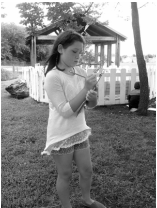
See the repetition in each of the quoted lists? From Math to Communication to History and other subjects, we see the need in education switching from recalling facts to being able to sort through piles of problems and opinions, from a variety of credible and incredible sources in order to find the best approaches.
Education suddenly becomes real and relevant. No longer should our classes be black words on white paper; instead, the learning fills the classroom. It's on the walls. It hovers in the air. It comes to us over loudspeakers, computer screens, and in storytelling. Students don't just memorize; now they live what they learn. Naturally, the same is true for Science:
21st Century Model
Science Skills Needed to Succeed Understand how the world works
And there they are again! Creativity. Wondering. Asking questions. Deconstructing situations and solving problems. It is a refreshing pattern for the thoughtful educator. Understanding that the same strategies apply to every facet of curricula is an epiphany. It takes those long lists of Common Core standards (or whatever we want to call our essential teachings) and narrows their focus. If one can apply the principles of 21st Century needs to every subject - make things real and meaningful, empower students to address every situation with relevant skills, and teach them to use real tools - students will be ready to face the world.
That brings us to Foreign Language. It doesn't take a scholar to understand that immersion in a culture is the quickest way to learn a language. In fact, that's how we all learned to talk in the first place. But to parse every aspect of a language the way Language classes traditionally have is a great way to get students to forget the Language we are trying to teach them.
21st Century Model
Foreign Language Skills Needed to Succeed True proficiency in speaking
Once again, and maybe the easiest to see, here is where reality is the way to go in teaching. Tying any language to its cultural uses, marrying language with its native speakers, their ways of life, and their belief systems, will make the learning of said language more meaningful for the learner. Not only that, but with the technological advances being made every day for translation software - even voice translators like the ones used by Mr. Spock - there soon may be no need to teach Foreign Language at all except to place it into context with culture.
Parents, teachers, and every other stakeholder are sick and tired of learning things for a test and then forgetting it only to find that we have to relearn the same material for yet another exam next year. We're tired of teaching to the test. We're tired of reviewing material from the previous year(s). How much the better if we refine our instruction to consistently ask students what they notice and what they wonder. How much the better when we teach students to dissect situations and use real tools to reconstruct new, better situations, tweaking those solutions along the way. How much the better when we teaching students to be happy, but never satisfied, with what they are, but instead always searching for ways to improve the world and recognizing successful improvements when they happen. Decisions, decisions. When the going gets tough, the tough go shopping. Here's your chance to do a bit of shopping yourself. Let's see what kind of lists you might make based on the following two products. List the positive and negative features for each on an organized chart, then justify a decision for buying one or the other. Now, can you be the salesman and convince customers that your chosen product is the better choice for them as well? From the Walmart website: Champion Power Equipment Model 46533, Light to Medium Duty Portable Generator for RV, Entertaining or Emergency Home Use (California Model). Pump up your power with the Champion Power Equipment Model 46533 Portable Generator. This gasoline-powered portable generator is powered by a 196cc Champion single cylinder, four-stroke OHV engine that produces 3500 running watts and 4000 starting watts. With a 3.8-gallon fuel tank, this 3500/4000 RV Ready Gas Powered Generator can run up to 12 hours at 50-percent load. Our OHV engine is equipped with a low oil shut-off sensor and designed for long life and easy maintenance. This unit is ideal for RVs, camping trips, hunting, traveling, jobs around the house, or back-up power in your home during emergencies. The Champion Power Equipment Portable Generator is CARB approved for all 50 states. From the Walmart website: The A-iPower Model SUA4500 4500W Generator is powered by a reliable 208cc/7HP single cylinder, four-stroke OHV engine and coupled by high quality alternator. This unit produces 3500 running watts and 4000 surge/starting watts with a 68dB sound rating from 23 feet to ensure low noise for quiet operation. The alternator produces more surge wattage to start motor-driven appliances and tools. With a four-gallon rigid steel fuel tank with built-in fuel gauge, this unit can run up to 13 hours at 50 percent load. The low oil shut-off sensor equipped on the engine is designed to protect the engine for long life and easy maintenance. The easy-to-reach integrated control panel makes the unit user-friendly.
 We don't do what we do for the recognition, but it's always nice to hear that the work we've done has been noticed. During the preparation time for this year's Veterans Day program, the teachers have tried to stress the idea of gratitude for the people who have served in the United States Armed Services. Performing for actual veterans was what it took to bring that idea home to our students. They truly felt great knowing that they had touched hearts.
I couldn't remember all of the accolades to record them here, but we'll definitely talk about them this morning.
It's old news now. Donald J. Trump will be the 45th president of the United States of America. In our class, yesterday, we talked about the electoral college and the protections it affords to smaller and less populated states, as well as states that might have different needs or differing values than others. The founding fathers really put forth an ingenious plan in our election process, to assure that a bully-majority does not take power unduly. Election night was certainly an interesting one, wasn't it? I finally tuned into the national news channels once the polls were closing and ballots were being tabulated, and I was on the edge of my seat for the hours that followed. To add to my experience, I clicked over to Real Clear Politics to keep up with the results on my own custom electoral map. It was probably as much fun as filling out my own bracket for March Madness. I was changing states from blue (Clinton) to red (Trump) and back again throughout the night, running possible scenarios for one of the candidates to reach the magic number of 270 electoral votes. For a while it was a nail-biter. Earlier in the day, I had told my class that if Florida went blue, Trump would probably not win the presidency. For a while it looked like that might happen. Within a short time, North Carolina was called for Mr. Trump, as well as Ohio. It was thought early on that he might win those electors, but the path to victory was still in the balance for him. Later in the evening however, some other states - Michigan and Wisconsin - started flipping blue to red, and the television media was flummoxed. I was watching the results live on the New York Times website, which allowed me to do what the TV guys were doing - drilling down to the county level to see which precincts had reported. The site also forecasted the percentage of probability that one candidate or the other would take the office. The gauge (below left) indicated that Hillary Clinton had about an 80% chance of going all the way. But as you know, the needle started to creep toward the middle of the gauge as information came in. By 9:00 it had changed sharply, and once it hit 95% on the Trump side, it stayed for the rest of the night. At about 1:40 am, Hillary Clinton called Donald Trump to concede the election. And that's when Yours Truly finally went to bed. Soon after, Mr. Trump took to the stage for a short and gracious victory speech. Mrs. Clinton made her concession speech after sunrise a few hours later.
I listened to both speeches. Mrs. Clinton's may have been the best I've heard from her, and Mr. Trump's was presented with humility. I was struck with President-Elect Trump's simple statement at the end: "...Hopefully you're going to be so proud of your president."
 We welcome teachers from Erie Elementary School in Erie, Kansas, who will observe in our classroom, today. For these "Red Devils" - and any other teachers who might drop by our website - our Teacher Collaboration page is a great place to start surfing. When at first you don't succeed... Things may not always be as they appear. Here is a terrific piece of storytelling, but at the same time, a terrific message. Take some time to watch this video: Now for some questions:
Decisions, decisions. When the going gets tough, the tough go shopping. Here's your chance to do a bit of shopping yourself. Let's see what kind of lists you might make based on the following two products. List the positive and negative features for each on an organized chart, then justify a decision for buying one or the other. Now, can you be the salesman and convince customers that your chosen product is the better choice for them as well? Can you answer their questions? Liquid-Plumr Full Clog Destroyer is a powerful drain cleaner that is specially formulated to take on the toughest clogs. The thick gel holds together to cut through standing water and attack built-up hair, gunk, grease and soap scum. It gets to work fast, eliminating stubborn blockages and leaving your drain free-flowing and clog-free. Full Clog Destroyer is safe for all garbage disposals, septic systems and pipes, including PVC, plastic, copper and old pipes. Keep your drains clear with Liquid-Plumr. Drano has your back with maximum strength for your worst clogs - or your money back...Use Drano Max Gel to unclog your drain with a maximum strength gel formula...Drano Max Gel pours through standing water and works fast to clear clogged drains and restore them to a free-flowing state. Safe for all pipes, it works great to remove hair, soap scum, and other gunky clogs.
While We're on the Topic
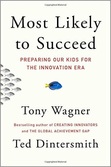
There is a lot to digest in the second chapter of Most Likely to Succeed: Preparing Our Kids for the Innovation. Authors Wagner and Dintersmith have constructed a set of words to challenge thoughtful educators and system leaders. The challenge? To think about the true purpose of education. Are we here to squash kids' energy? To squelch their creativity? To make them memorize algorithms and lists of dates?
Or are we here to make them think? To teach them how to make decisions? To guide them to epiphany? To create good citizens? The authors offer possible reasons why the education system is the way it is today, explaining the history of schools. They go on to explain that while our real needs have changed - from the information age to the innovation age - how we teach and learn has not changed with the times. I understand how they come to this conclusion. We are often confronted with a line graph tracking two lines of data. One is a line of advancements in technology and the like, while the other line displays advancements in education. The latter is relatively flat, while that technology line juts sharply upward. I have always found this graph perplexing. In fact, I believe wholeheartedly that this chart misleads its readers. 
To think that our current education system fails because it does not kept up with technological advancements is absurd. Could it be that our system is actually responsible for those same advancements, at least in part?
Surprisingly, Wagner and Dintersmith acknowledge this to a degree. Still, while rote memorization has some benefits for basic facts like multiplying one-digit numbers, it is no longer a "big deal" to memorize everything under the sun. However, memorization being the method by which many people have been taught in the past, it seems to be the natural go-to method for many of the people in power. At the very least it is the way in which people on the front line tend to interpret any type of standardized curriculum and standards, and it is the way in which we approach standardized testing. Nationally, we have somehow convinced ourselves that if a child in America went the entirety of K-12 without covering important content (e.g., the Crimean War), that child would suffer irreparable harm. Or, just as bad, if a child moved from Nebraska to Illinois and ended up covering the Crimean War twice, our education framework must be fundamentally flawed. And now the "Common Core" wants to standardize curriculum broadly, trying to ensure that the same content is taught in the same sequence across the country, and that all students are "college ready."
Whenever lists of examples appear on Common Core websites and others, those lists tend to become the exact topics in classrooms, removing all aspect of creativity from teachers' strategies and from students' expected responses. We tend to feel as if we must cover everything on the list.
To top it off, that's what administrators and observers then want to see in each classroom. They want to begin a lesson observing in one classroom, then move to other classes in the same "pod" for a continuation and conclusion to the same exact lesson. They want it to be flawless. Scripted. Exactly the same, if that's possible, in each room. That's every teacher, every student, and every lesson the same. That doesn't seem to be at all like we're assembly line workers building robots, does it? Each school is its own community, with a unique context. The goals, aspirations, and talents of its students, teachers, and surrounding community shape its purpose. It we want our education system to be dynamic and innovative, we need to respect each school's distinct nature, and give schools the trust and support to determine how best to formulate and achieve a well-thought-our purpose and set of goals. We need to embrace and encourage - not seek to eliminate - local differences in our approach to educating students. That said, we need clarity for the overarching purpose of education, irrespective of local context, and a foundation for putting our students in a position to succeed in life.
Thank you for stating what experts should already know. We call it common sense, but it hasn't seemed to be common for quite some time now. The fact that we have to point out that our differences is what gives us strength should alert us that we've strayed too far into a completely different direction.
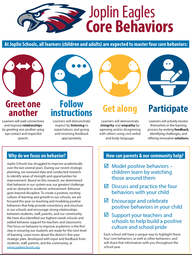
The list shown here (above, right) might be a place to begin. Consider the list, which includes all the things that tomorrow's jobs are going to require. I've contended for my entire career that we should never break down our lessons and our courses into individual subjects, but that items must flow across the various subject areas. Math flows throughout history and science. Writing and reading certainly have application in every possible area. When we isolate these subjects, we create an alternate reality in our classrooms - a reality in which students compartmentalize their thinking - but real life doesn't work that way. In real life, people must make decisions based on everything they know, not just how to find compound verbs or how to subtract fractions. In real life, we like to piece things together, make connections, and dissect the situations when they present themselves to us.
I tend to like a list like this, but I can certainly understand the desire to keep things traditional at the same time. If our current system is responsible for ushering the innovation age, then it's probably not something we want to completely throw out with the bathwater. Instead, we might find that a meld of sorts is in order. Our district focuses on certain Core Behaviors to support academics (above, left). Such could fit well with the suggestions of the Most Likely to Succeed authors. Let this video explain a little more:
 I have applied to participate in the Spring Residential Program at George Washington's estate in Mount Vernon, Virginia. The session for which I applied deals with slavery at Mount Vernon. If selected for one of the Missouri scholarships, I will be allowed to visit Mount Vernon, in April, and work for four days studying and developing educational materials with other educators from around the nation. Missouri is among the states allowing stipends for the visit, as well as travel expenses. The application process includes a recommendation letter from an administrator, another from a teaching peer, a copy of my teaching resume, basic personal and school information, and a 500-page essay. The essay, copied below, is to outline my personal educational philosophy and interest in the good president. Since the newest version of Missouri's standards in Social Studies and History puts founding documents into the fourth grade expectations, this is an opportune time to learn more about George Washington (not to mention that national history blends so well with our state history). I have read that kids are 20% of the population, but they are 100% of the future. Tomorrow’s family, community, and nation leaders are in my classroom today! To reflective educators, that hits hard; it puts me in mind of a statement made to me, 25 years ago, by the grandmother of a boy in my class: through tears, she told me I was the only calm male influence for her grandson. Obviously, her words stuck with me. They still press on my shoulders as I absorb their weight. Conscientious teachers realize their importance extends well beyond reading and math. Of course, there is no guarantee of acceptance, but the process of application by itself is a healthy reflection exercise for me. I have my fingers crossed that I will be able to travel to a section of our land that I have not previously visited. It will be made extra special in that teachers stay on the property during the four-day program. I anticipate hearing more about my candidacy in December.
Our Halloween parade and party were huge successes. At one point, I counted 15 parents in the room, with 22 fourth graders and a couple of younger siblings. The room was hoppin'. And the thing is, things were organized, and parents were hoppin' right along with the kids. We had no down time, and the kids didn't get restless. My abundant thanks to CADEN's parents for organizing a great experience.
|
AnthemThe Hoggatteer Revolution
is an extensive, award-winning, inimitable, digital platform for Encouraging and Developing the Arts, Sciences, and honest Christianity in the beautiful, friendly LAND OF THE FREE AND THE HOME OF THE BRAVE This site is described as
"a fantastic site... chockablock full of interesting ideas, hilarious anecdotes, and useful resources." 
...to like, bookmark, pin,
tweet, and share about the site... and check in regularly for new material, posted often before DAWN'S EARLY LIGHT! History in ResidenceElementary Schools: Bring Mr. Hoggatt into your classroom for a week of engaging and rigorous history programming with your students. LEARN MORE BUILDING BETTER
|
